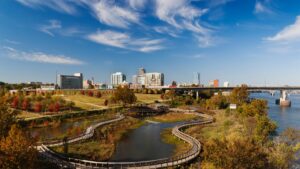

The ocean is a critical life-support system for our planet through its role in global climate regulation. It absorbs most of the carbon emissions and heat trapped in the atmosphere, which result from human activities. Over the years, this has led to ocean warming (OW), ocean acidification (OA), and ocean deoxygenation (OD). Moreover, increased anthropogenic nitrogen deposition (AND) has largely influenced marine environments.
As part of these consequences, the gases nitrous oxide (N2O) and methane (CH4) are primarily controlled by ‘prokaryotes’ or microbial organisms living in the ocean. While several studies have analyzed these processes in detail, their concurrent impact on ocean ecosystems has not been investigated.
In a recent study, a team of researchers led by Prof. Il-Nam Kim, Associate Professor of Marine Science at Incheon National University, evaluated the prokaryotic population changes and metabolic modifications due to the concurrent impact of OW, OA, OD, and AND across the Western North Pacific Ocean. Their findings were published in Marine Pollution Bulletin.
“Climate change leads to marine environmental changes, and this study can enhance our understanding of their impact on human life,” Prof. Kim says.
The authors simultaneously studied the effects of climate change across the surface layer (SL), intermediate layer (IL), and deep layer (DL) of the ocean. The microbial community and their functional potential in regulating the N2O and CH4 cycles were evaluated using biogeochemical analysis and microbial genome sequencing.
The results indicated that prokaryotes from SL to DL are closely associated with climate change drivers. During the long term, the sensitive marine ecosystem in WNPO can be adversely affected by an increase in N2O production with subsequent pH alteration, ultimately increasing CH4 emissions.
These findings deviate from the currently assumed potential of prokaryotes and biogeochemical processes related to climate change. It also realigns the focus on how climate change impacts the open ocean ecosystem. Dr. Kim concludes, “This research will contribute to raising the awareness about the severity of climate change and the importance of the ocean resources.”
This pioneering study has the potential to shape future marine ecosystem research. Policies aimed at reducing ocean acidification and warming can help in the stabilization of these vital microbial communities and greenhouse gas cycles.
More information:
Satheeswaran Thangaraj et al, Unraveling prokaryotic diversity distribution and functional pattern on nitrogen and methane cycling in the subtropical Western North Pacific Ocean, Marine Pollution Bulletin (2023). DOI: 10.1016/j.marpolbul.2023.115569
Provided by
Incheon National University
Citation:
Researchers investigate how climate change drivers reshape ocean methane and nitrous oxide cycles (2023, December 6)
retrieved 6 December 2023
from https://phys.org/news/2023-12-climate-drivers-reshape-ocean-methane.html
This document is subject to copyright. Apart from any fair dealing for the purpose of private study or research, no
part may be reproduced without the written permission. The content is provided for information purposes only.





